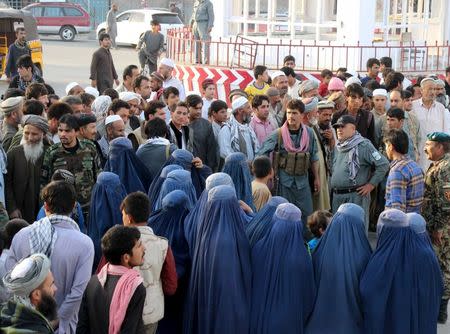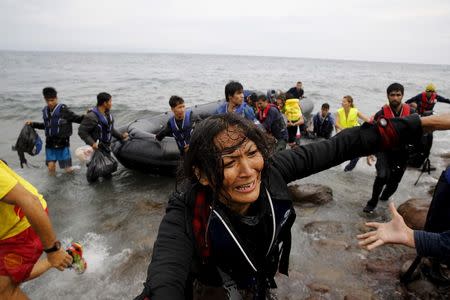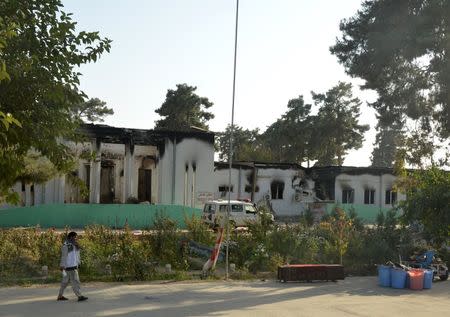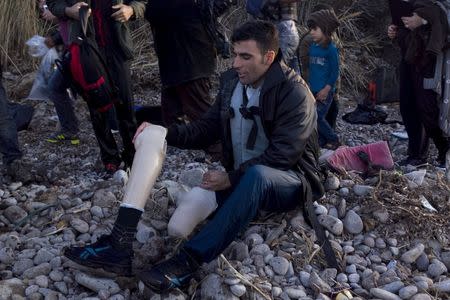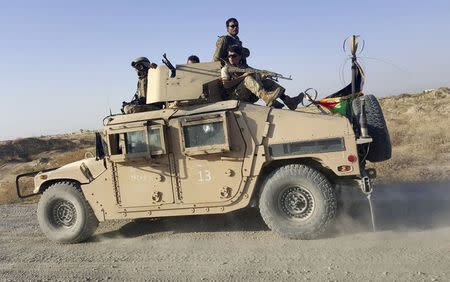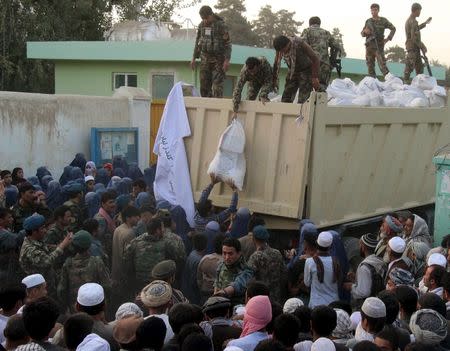Insight - After Kunduz falls and violence spreads, more Afghans eye Europe
By Krista Mahr KABUL (Reuters) - The young man from the northern Afghan city of Kunduz used to make a decent living doing a dangerous job. As an informer for Afghanistan's intelligence agency, he posed as a businessman and mingled with Taliban insurgents, gathering GPS data, photos and audio clips of militants. That all ended on the morning of Sept. 28, when hundreds of Taliban fighters besieged the provincial capital, briefly taking control of the city. They stormed the local headquarters of the National Directorate of Security, where files detailing covert activities were kept, said the 24-year-old, whose name and precise profession have been omitted to protect his identity. "They captured all our reports. I'm not safe anywhere in Afghanistan." While his predicament may be worse than most, he is among thousands of Afghans who have fled Kunduz since the Taliban's stunning advance, many of them looking to escape the country altogether and head for Europe. Now in Kabul, the man says he can never go back. Nor can he stay, fearful the Taliban will come looking for him. He has been haggling with a human smuggler over the $9,000 passage to Europe, and knows a dozen former colleagues and friends looking to do the same after leaving Kunduz in a hurry. HUMAN TIDE Since Kunduz fell, some 100,000 residents have fled clashes there between Afghan security forces and insurgents, according to U.N. estimates, scattering to camps, hotels and relatives' homes across the north and in Kabul. The flight has helped bring the number of Afghans displaced by fighting to more than one million, as security deteriorates around the country. This week, the Taliban said it was withdrawing from Kunduz city centre, and the government has started helping some residents to return. But some say there is no going back, as they are unable to shake the fear of bullets hitting their homes, roads strewn with crude bombs or stories of rape and kidnapping. Like the more than 120,000 Afghans who have already applied for asylum in greater Europe this year, many want out. "This is a crisis, to be honest with you," said Abdul Ghafoor, who runs the Afghanistan Migrants Advice and Support Organization (AMASO) in Kabul. More and more people come to him asking how to get out. "I ask them, 'Why are you leaving?' They say, 'Look around.'" "THIS CAN HAPPEN ANYWHERE" For Mohammad Basir, Kunduz had become too risky months before the city fell. Word reached militants in a nearby district that Basir worked with the United Nations in Kunduz and earned a good living. Neighbours whom he suspected sympathized with the militants started to treat him differently. After receiving a phone call from a local Taliban commander demanding he resign and start paying the insurgents, Basir relocated to Kabul, and his wife and children managed to join him later after Kunduz fell. Basir worries the Taliban may have him in their sights, and has been talking to several smugglers about getting to Europe via Iran. "This time it happened in Kunduz, but this can happen anywhere," he said. "I cannot trust the government. I cannot trust police. I cannot trust anyone." Long lines outside the passport office have become a fixture in the early mornings in the capital, testament to rising violence that culminated in Kunduz's capitulation, the worst setback for Afghan forces since the insurgency began in 2001. Even people returning to Afghanistan after spending years abroad are looking to leave again straight away, said AMASO's Ghafoor. He said the vast majority of returning Afghans his organization helped have left, and more are looking to follow. "If a returnee is from Ghazni, travelling to Ghazni is like suicide now," he said, referring to the province southwest of Kabul where fighting has flared between Taliban fighters and Afghan security forces in recent weeks. "How long can you stay in Kabul doing nothing?" NO WAY OUT For others, waiting in Kabul is their only choice. Shakila Ahmadi had been living in a downtown hotel with her four daughters and son, after a local businessman donated several rooms to Kunduz families free of charge. She escaped the city with nothing but her children in the car, leaving her husband, a police officer, behind to fight. Some Kunduz residents who made it to the relative safety of Kabul have criticized the government for not doing enough to help and leaving private donors to fill the gaps. "No representative of the government has come here to ask about them or give them any support," Haji Ghulam Hassan, the hotel owner and a wealthy businessman from northern Balkh province, said on Monday. "We did our part. My government also has a responsibility to do something." Getting help to tens of thousands of uprooted people has been a challenge, said Wais Ahmad Barmak, state minister for disaster management and response. "There was an issue of coordination and leadership," Barmak said, adding that an emergency task force had been set up to handle the response and had improved matters. "This was really a different and more complex (displacement) situation." According to Barmak, the government's emergency funds are sufficient to deal with the crisis, but international donors have also been working in the north and central parts of the country to help the newly displaced. He added that the government had begun identifying people who were homeless in Kabul and providing temporary shelter, and is now working to get food to families and transport those who want to go back to Kunduz. Ahmadi, for now, is staying in Kabul. As of Thursday, she had been unable to contact her husband, the police officer. She did not know whether his phone was dead, if he had been captured by the Taliban, or worse. "We can't afford a smuggler. We left Kunduz with nothing," Ahmadi said. "We need to find another way." (Additional reporting by Aimal Yaqubi and Hamid Shalizi in Kabul; Editing by Mike Collett-White)

 Yahoo News
Yahoo News 